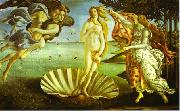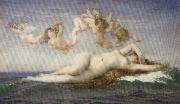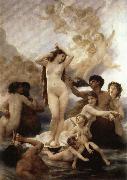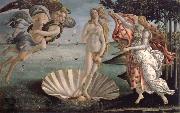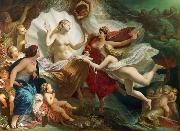Wholesale Oil Painting No Minimum |
|||||||||||
|
|
|||||||||||

|
|||||||||||
|
|
|
||||||||
Sandro BotticelliItalian Early Renaissance Painter, 1445-1510 Italian painter and draughtsman. In his lifetime he was one of the most esteemed painters in Italy, enjoying the patronage of the leading families of Florence, in particular the Medici and their banking clients. He was summoned to take part in the decoration of the Sistine Chapel in Rome, was highly commended by diplomatic agents to Ludovico Sforza in Milan and Isabella d Este in Mantua and also received enthusiastic praise from the famous mathematician Luca Pacioli and the humanist poet Ugolino Verino. By the time of his death, however, Botticelli s reputation was already waning. He was overshadowed first by the advent of what Vasari called the maniera devota, a new style by Perugino, Francesco Francia and the young Raphael, whose new and humanly affective sentiment, infused atmospheric effects and sweet colourism took Italy by storm; he was then eclipsed with the establishment immediately afterwards of the High Renaissance style, which Vasari called the modern manner, in the paintings of Michelangelo and the mature works of Raphael in the Vatican. From that time his name virtually disappeared until the reassessment of his reputation that gathered momentum in the 1890s |
||||||||
|
|
||||||||
Birth of Venus
Birth of Venus Painting ID:: 10013 |
1485
Tempera on canvas
Galleria degli Uffizi
Florence, Italy 1485 Tempera on canvas Galleria degli Uffizi Florence, Italy |
|||||||
|
|
||||||||
Alexandre CabanelFrench Academic Painter, 1823-1889 French painter and teacher. His skill in drawing was apparently evident by the age of 11. His father could not afford his training, but in 1839 his departement gave him a grant to go to Paris. This enabled him to register at the Ecole des Beaux-Arts the following October as a pupil of Franeois-Edouard Picot. At his first Salon in 1843 he presented Agony in the Garden (Valenciennes, Mus. B.-A.) and won second place in the Prix de Rome competition (after Leon B?nouville, also a pupil of Picot) in 1845 with Christ at the Praetorium (Paris, Ecole N. Sup. B.-A.). Both Cabanel and Benouville were able to go to Rome, as there was a vacancy from the previous year. Cabanel's Death of Moses (untraced), an academic composition, painted to comply with the regulations of the Ecole de Rome, was exhibited at the Salon of 1852. |
||||||||
|
|
||||||||
|
|
Birth of Venus
Birth of Venus Painting ID:: 30806 |
mk68
oil on canvas
Paris,Orsay Museum
1865
France
mk68 oil on canvas Paris,Orsay Museum 1865 France |
||||||
|
|
||||||||
Adolphe William BouguereauBouguereau made more than seven hundred finished works. French painter. From 1838 to 1841 he took drawing lessons from Louis Sage, a pupil of Ingres, while attending the coll?ge at Pons. In 1841 the family moved to Bordeaux where in 1842 his father allowed him to attend the Ecole Municipale de Dessin et de Peinture part-time, under Jean-Paul Alaux. In 1844 he won the first prize for figure painting, which confirmed his desire to become a painter. As there were insufficient family funds to send him straight to Paris he painted portraits of the local gentry from 1845 to 1846 to earn money. In 1846 he enrolled at the Ecole des Beaux-Arts, Paris, in the studio of Francois-Edouard Picot. This was the beginning of the standard academic training of which he became so ardent a defender later in life. Such early works as Equality reveal the technical proficiency he had attained even while still training. In 1850 he was awarded one of the two Premier Grand Prix de Rome for Zenobia Discovered by Shepherds on the Bank of the River Araxes (1850; Paris, Ecole N. Sup. B.-A.). In December 1850 he left for Rome where he remained at the Villa Medici until 1854, working under Victor Schnetz and Jean Alaux (1786-1864). During this period he made an extensive study of Giotto's work at Assisi and Padua and was also impressed by the works of other Renaissance masters and by Classical art. On his return to France he exhibited the Triumph of the Martyr (1853; Luneville, Mus. Luneville; ) at the Salon of 1854. It depicted St Cecilia's body being carried to the catacombs, and its high finish, restrained colour and classical poses were to be constant features of his painting thereafter. All his works were executed in several stages involving an initial oil sketch followed by numerous pencil drawings taken from life. Though he generally restricted himself to classical, religious and genre subjects, he was commissioned by the state to paint Napoleon III Visiting the Flood Victims of Tarascon in 1856 |
||||||||
|
|
||||||||
|
|
Birth of Venus
Birth of Venus Painting ID:: 30835 |
mk68
Oil on canvas
Paris,Orsay Museum
1879
France
mk68 Oil on canvas Paris,Orsay Museum 1879 France |
||||||
|
|
||||||||
Sandro BotticelliItalian Early Renaissance Painter, 1445-1510 Italian painter and draughtsman. In his lifetime he was one of the most esteemed painters in Italy, enjoying the patronage of the leading families of Florence, in particular the Medici and their banking clients. He was summoned to take part in the decoration of the Sistine Chapel in Rome, was highly commended by diplomatic agents to Ludovico Sforza in Milan and Isabella d Este in Mantua and also received enthusiastic praise from the famous mathematician Luca Pacioli and the humanist poet Ugolino Verino. By the time of his death, however, Botticelli s reputation was already waning. He was overshadowed first by the advent of what Vasari called the maniera devota, a new style by Perugino, Francesco Francia and the young Raphael, whose new and humanly affective sentiment, infused atmospheric effects and sweet colourism took Italy by storm; he was then eclipsed with the establishment immediately afterwards of the High Renaissance style, which Vasari called the modern manner, in the paintings of Michelangelo and the mature works of Raphael in the Vatican. From that time his name virtually disappeared until the reassessment of his reputation that gathered momentum in the 1890s |
||||||||
|
|
||||||||
|
|
birth of venus
birth of venus Painting ID:: 55971 |
mk247
1482 to 86,tempera on canvas,68x109.5 in,172.5x278.5 cm,uffizi,florence,ltaly mk247 1482 to 86,tempera on canvas,68x109.5 in,172.5x278.5 cm,uffizi,florence,ltaly |
||||||
|
|
||||||||
Henri-Pierre Picou(27 February 1824 - 17 July 1895) was a French painter born in Nantes.His oeuvre began with portraits and classical historical subject matter but he later moved on to allegorical and mythological themes.He was an academic painter and one of the founders of the Neo-Grec school, along with his close friends Gustave Boulanger, Jean-L??on G??rôme, and Jean-Louis Hamon, also academic painters. All of them studied in the workshops of both Paul Delaroche and later Charles Gleyre. Picou's style was noticeably influenced by Gleyre. While the rest of the group generally painted classical and mythological subjects, Picou also received commissions for large religious frescoes from many churches, including the Église Saint-Roch. His artistic debut was at the Salon in 1847. The next year he was awarded a second-class medal for his painting, Cl??opâtre et Antoine sur le Cydnus. Also known as Cleopatra on the Cydnus, it is commonly regarded as Picou's masterpiece. This showing at the Salon in 1848 was written about by the critic Th??ophile Gautier, who felt that the subject matter was too ambitious, but also said that "As it is, it gives the best hope for the future of the young artist, and ranks among the seven or eight most important paintings of the Salon.In 1875 the painting was exhibited in New York, and afterward found lodgment on the walls of a private art gallery in San Francisco.Picou maintained a large workshop in Paris on the Boulevard de Magenta, which provided him room to work on his expansive frescoes. His popularity continued to rise and he went on to win the Second Prix de Rome in 1853 for his painting, J??sus chassant les vendeurs du Temple (The Moneylenders Chased from the Temple), and another second-class medal for his Salon painting in 1857. From his debut in 1847, he was a regular at the Salon, showing almost every year until his final exhibit in 1893.He has been called the most fashionable painter towards the close of the Second French Empire |
||||||||
|
|
||||||||
|
|
Birth of Venus
Birth of Venus Painting ID:: 74561 |
Date 1874(1874)
Medium Oil on canvas
Current location Galerie Nataf
cyf Date 1874(1874) Medium Oil on canvas Current location Galerie Nataf cyf |
||||||
|
|
||||||||
|
Henri-Pierre Picou (27 February 1824 - 17 July 1895) was a French painter born in Nantes.His oeuvre began with portraits and classical historical subject matter but he later moved on to allegorical and mythological themes.He was an academic painter and one of the founders of the Neo-Grec school, along with his close friends Gustave Boulanger, Jean-L??on G??rôme, and Jean-Louis Hamon, also academic painters. All of them studied in the workshops of both Paul Delaroche and later Charles Gleyre. Picou's style was noticeably influenced by Gleyre. While the rest of the group generally painted classical and mythological subjects, Picou also received commissions for large religious frescoes from many churches, including the Église Saint-Roch. His artistic debut was at the Salon in 1847. The next year he was awarded a second-class medal for his painting, Cl??opâtre et Antoine sur le Cydnus. Also known as Cleopatra on the Cydnus, it is commonly regarded as Picou's masterpiece. This showing at the Salon in 1848 was written about by the critic Th??ophile Gautier, who felt that the subject matter was too ambitious, but also said that "As it is, it gives the best hope for the future of the young artist, and ranks among the seven or eight most important paintings of the Salon.In 1875 the painting was exhibited in New York, and afterward found lodgment on the walls of a private art gallery in San Francisco.Picou maintained a large workshop in Paris on the Boulevard de Magenta, which provided him room to work on his expansive frescoes. His popularity continued to rise and he went on to win the Second Prix de Rome in 1853 for his painting, J??sus chassant les vendeurs du Temple (The Moneylenders Chased from the Temple), and another second-class medal for his Salon painting in 1857. From his debut in 1847, he was a regular at the Salon, showing almost every year until his final exhibit in 1893.He has been called the most fashionable painter towards the close of the Second French Empire Birth of Venus Date 1874(1874) Medium Oil on canvas Current location Galerie Nataf cyf |
||||||||
|
|
||||||||
|
Prev Next
|
||||||||
|
|
||||||||
|
Related Paintings to Henri-Pierre Picou :. |
||||||||
|
|
||||||||
|
CONTACT US |
